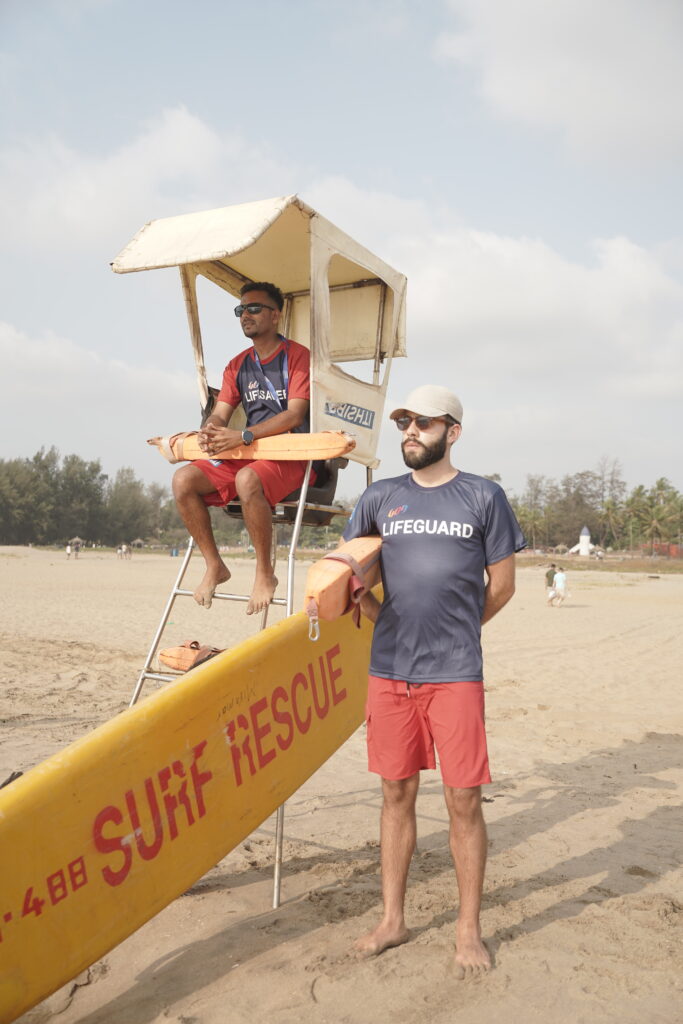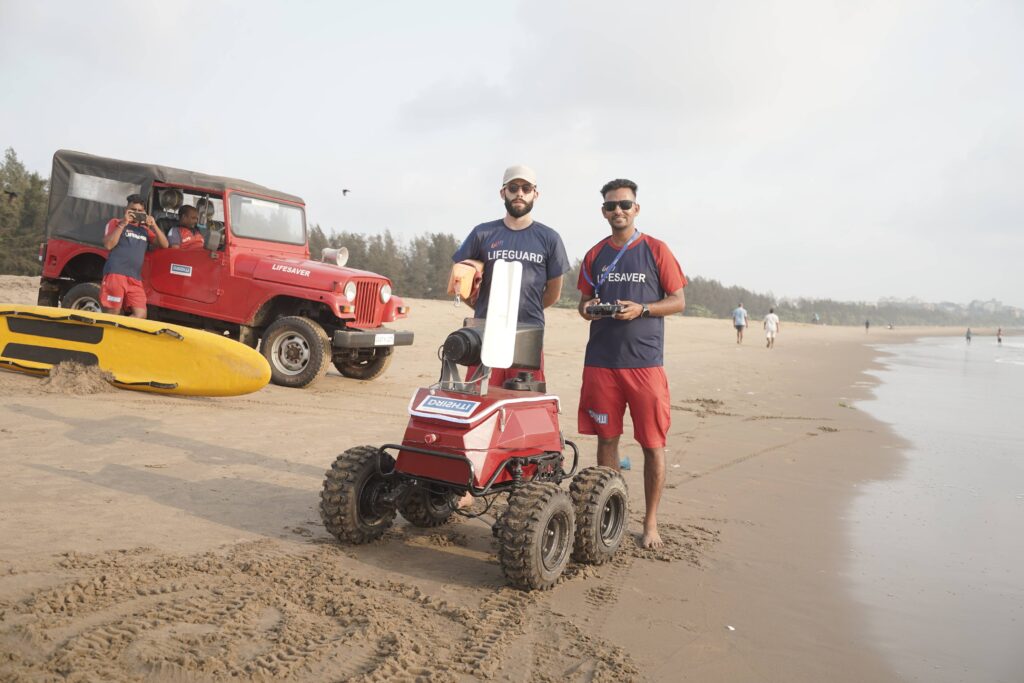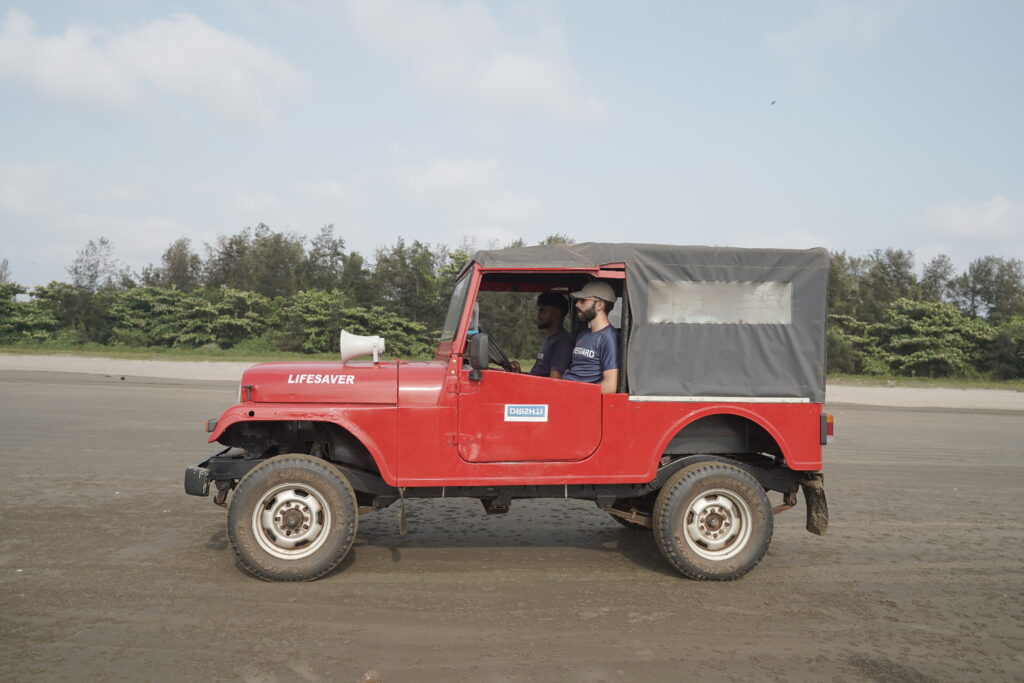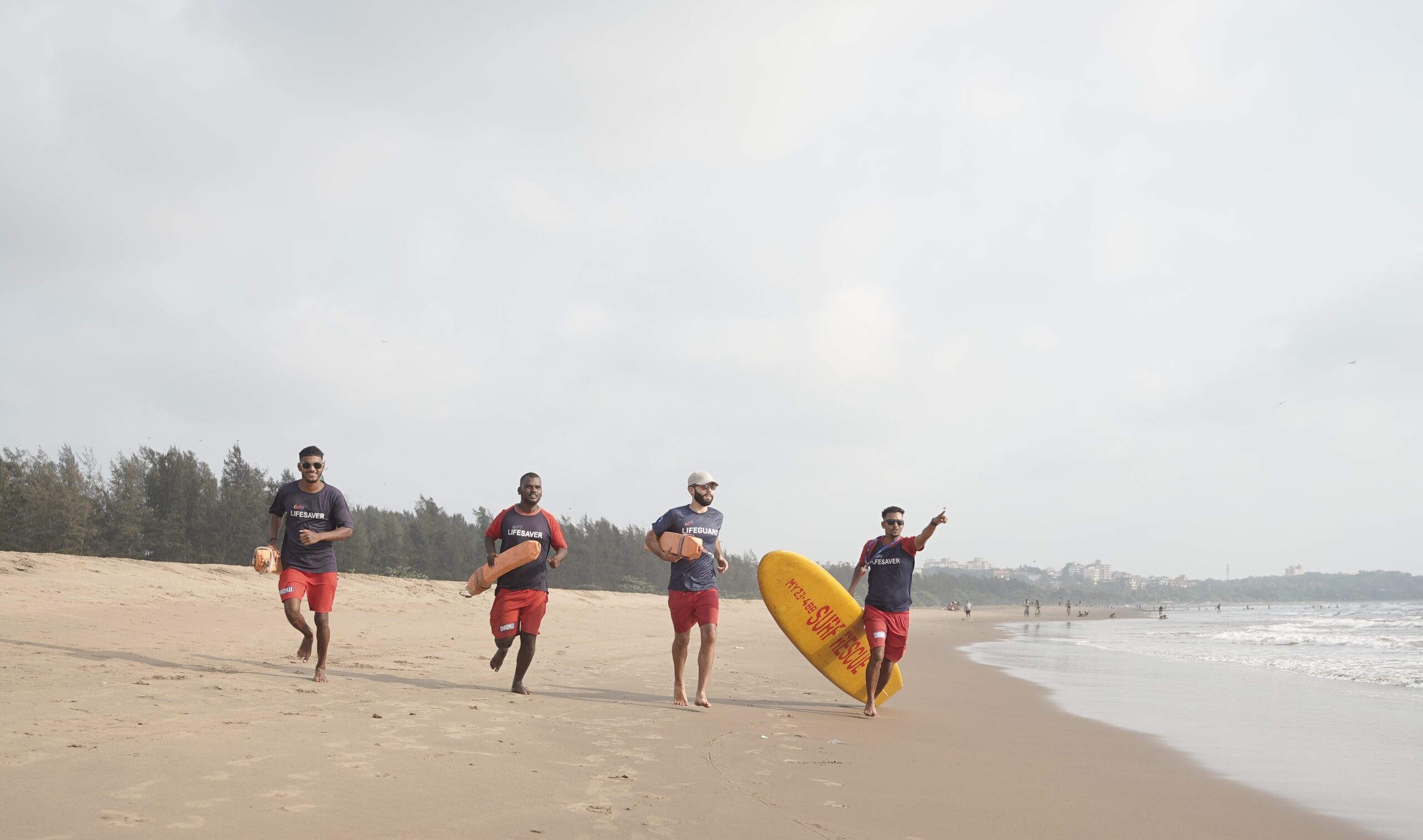
From Portugal’s rugged coastline to the sun-drenched shores of Goa, 23-year-old professional lifesaver Vasco Mateus Preto has made waves, literally and metaphorically. With over six years of experience in lifesaving on the beaches of Portugal and Costa Rica, and a passion for lifesaving that surpasses borders, his story is one of commitment, cultural curiosity and professional growth. Now volunteering with Drishti Marine in Goa, Vasco speaks to ItsGoa about his experience in keeping a watchful eye on Goan shores, saving lives and educating the masses on safe coastal practices.
When was the first time you heard about Goa?
I first heard about Goa during a history class in school, as well as the story of Vasco da Gama. The name always stood out to me, maybe because we share it! I never thought I’d follow in his footsteps so literally, but here I am, experiencing this vibrant and culturally rich part of India.
What places do you like in Goa and which Goan foods have stood out to you?
I’ve enjoyed exploring the small, rocky beaches in the south, namely Betul Beach, Cabo Serai and Butterfly Beach. There’s something peaceful and untouched about them. The beach towns have also been a highlight, especially with their variety of cafés and restaurants along the coast.
So I’ve been vegetarian for the past few years, and coming to India has made that incredibly easy with the variety of vegetarian dishes here. I’ve relished local options like mushroom xacuti and different vegetable curries.
Do you see a reflection of Portuguese culture in Goa?
Yes, definitely. You can see it in the architecture, the old churches, the cuisine and even in some of the words or expressions locals use. What’s most interesting is how these Portuguese influences haven’t just remained, they’ve transformed into something that feels distinctly Goan. It’s a mix of cultures that you can distinctly sense as you explore the place.
You’ve worked as a lifesaver in Portugal and Costa Rica. What made you choose India, and specifically Drishti Marine, for this new chapter?
I was looking for a new challenge, something that would push me out of my comfort zone. India has always fascinated me with its cultural diversity, and Goa felt like the perfect place to experience that firsthand. Drishti Marine stood out for its professional approach, strong focus on training, and use of advanced lifesaving equipment. It felt like the right opportunity to grow both personally and professionally while contributing to a meaningful mission.
What has your experience been like training and working alongside the Drishti team; and what about their approach or technology has impressed you the most?
My training with Drishti Marine was well structured and similar to the Portuguese syllabus I was used to, which made the transition smooth. Working alongside the team has been a remarkable experience due to their professional nature and commitment to their responsibilities. Everyone takes pride in what they do; whether on duty or during drills, there’s always a willingness to support and learn from one another.
I was particularly impressed by Drishti Marine’s focus on innovation through the use of AI, robotics, and even rescue dogs. It’s not something you see often in lifesaving, and it shows dedication to improving both efficiency and safety through innovative methods.
How does lifesaving here compare to your time on beaches in Portugal and Costa Rica?
In Portugal, I worked both on the mainland and in the archipelagos (Madeira and Azores), where the Atlantic is colder, rougher, and often unpredictable. Costa Rica also had strong currents, especially around the surf beaches, which demanded constant attention. In Goa, the sea is generally calmer, but the volume of beachgoers, especially during peak season, brings a different set of responsibilities. You also see differences in how people respond to safety instructions, so communication becomes a key part of the job.
What’s one skill or lesson you’ve learned here, working with Drishti Marine, that you’ll take back with you to Portugal?
Adaptability has been key, whether in adjusting to a new team or learning unfamiliar safety protocols. I’ve also seen how essential tools like jet skis and ATVs make for fast, effective rescues. This is something still lacking in many parts of Portugal but is becoming increasingly important.




